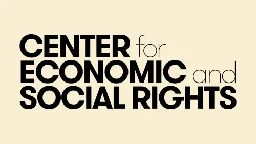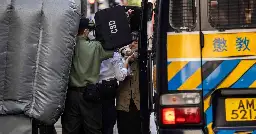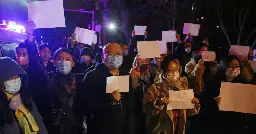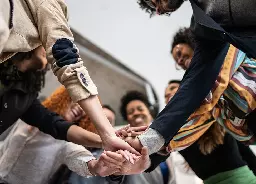The Ministries of Foreign Affairs of Belarus and Russia have prepared the first joint report on the human rights situation in certain countries. The document was published on the websites of the foreign ministries on the morning of 20 June
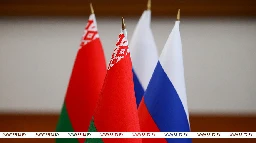
> The Ministries of Foreign Affairs of Belarus and Russia have prepared the first joint report on the human rights situation in certain countries. The document was published on the websites of the foreign ministries on the morning of 20 June, BelTA has learned.
> The review covers more than 40 countries. Among them are many EU countries (including the closest neighbors of Belarus), the UK, the United States, Canada, Japan, Australia and New Zealand, Ukraine, Moldova and others.
> A very detailed fact-finding report has been prepared for every country. As visual confirmation, the document has numerous photos. The document is large, more than 1,800 pages long!
> Addresses to readers were written by Belarusian Minister of Foreign Affairs Yuri Ambrazevich and Russian Deputy Foreign Minister Sergei Vershinin. As they noted, the facts the Report contains show that racist and neo-colonial views are typical of Western "model democracies" in principle.
The European Court of Human Rights listed multiple violations. Its findings paint a grim picture of life under a decade of Russian occupation.

> Evidence cited in the ruling showed how Russia, and its proxy government in the region, have created an atmosphere of oppression, using blanket laws targeting extremism and terrorism to silence dissent. Pro-Ukrainian media outlets have been abolished, while the Ukrainian language has been suppressed in schools. Ukrainian banks have been nationalized, along with their customers’ property and assets, the court found.
> Crimean Tatars, an ethnic minority, have also been targeted, and between 15,000 and 30,000 Tatar have fled the region since 2014. Tatar television channels have been removed from the air, their cultural and religious buildings vandalized and some Tatar homes have been painted with crosses. Any gatherings by Tatar leaders or groups deemed pro-Ukrainian have been violently broken up, with attendees detained.
> Crimea’s occupying government has also cracked down on religious diversity, raiding madrassas and mosques, expelling Ukrainian Orthodox priests and repurposing their churches. Journalists critical of the regime are also routinely harassed and threatened.
56th regular session of the Human Rights Council (18 June – 12 July 2024)
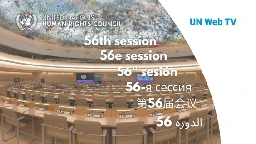
This symposium seeks to problematize assumptions that human rights are the natural legal and normative framework for platform governance.

> Yet while human rights offer a salient language of social justice, it is unclear whether they are legally and conceptually adequate to address the most important political, social and economic questions and conflicts raised by the platformization of social life. Critical literature suggests that the individualized, state-oriented legal protections and non-confrontational language of human rights have historically been as likely to stabilize state and corporate power as to challenge it. Moreover, technology regulation scholars argue that greater attention should be directed towards how digital platforms are transforming the material and socio-technical environments that constitute the conditions of possibility for realizing human rights in practice.
Interesting that this is being downvoted.
It would be great if someone could articulate the negative sentiment towards bitcoin.
As a former software developer, and someone who has briefly experimented with the blockchains, I can say that the technology is vastly over-hyped and completely misunderstood.
Can Human Rights be furthered by use of blockchains? It's quite possible.
But what use is there focusing on the simplest of use cases: bitcoin?
CBS Mornings sat down with Jordyn Zimmerman, a non-verbal autistic woman who uses technology to be an advocate for disability rights.

New data from the World Health Organization shows that many governments around the world did not meet public healthcare spending benchmarks amid the Covid-19 pandemic. The new information indicates possible violations of countries’ obligations to the human right to health.

> “When governments neglect to invest in their healthcare systems, people and families end up shouldering the burden,” said Matt McConnell, economic justice and rights researcher at Human Rights Watch. “While more spending is not enough on its own to ensure universal access to high quality healthcare services, it can help shift this burden, which causes the most harm for people with the fewest resources.”
> The Human Rights Watch analysis of healthcare spending in more than 190 countries around the world, available in a summary table at the end of this document, also found that:
> Despite a mass increase in healthcare spending across the globe in response to the pandemic, 38 governments spent less on health care in 2021, as a share of their GDP, than the year before it began.
> Despite governments’ commitments to reduce out-of-pocket expenditures, individuals and their households collectively paid the equivalent of about US$1.68 trillion for health care out of their own pockets in 2021, a figure comparable to the annual GDP of Australia or the Republic of Korea.
> At the height of the pandemic, out-of-pocket payments covered the costs of more than 20 percent of health care in 119 countries. Only high-income countries averaged less than 20 percent in 2021 (17 percent), while upper-middle (29.9 percent), lower-middle (34.6 percent), and low-income (39.1 percent) countries averaged far more.
> In 47 countries in 2021, individuals and their households collectively paid more out-of-pocket for health care than their governments spent on it.
> Twenty years after agreeing to the Abuja Declaration and committing to spend at least 15 percent of their national budgets on health care, only 2 of the African Union’s 55 member countries met this target in 2021: Cabo Verde (15.75 percent) and South Africa (15.29 percent). On the whole, countries in the African Union spent an average of 7.35 percent of their national budgets on health care that year.
> Eighty-three governments paid more per person to service their external public and publicly guaranteed debts in 2021 than on health care.
Indeed, it is:
https://lemmy.sdf.org/post/18443730 <- universal healthcare and human rights
The right to the highest attainable standard of physical and mental health[10]—a right that practically all countries have committed to uphold
Except, the United States still hasn't ratified.
https://lemmy.sdf.org/post/17662154 <- map of who hasn't ratified
https://lemmy.sdf.org/post/17841177 <- easy-to-read ICESCR
[opinion] Mental health must be upheld as a universal human right
As multiple crises are putting mental health under pressure, people must be guaranteed the right to better care.

> Multiplying and escalating crises are placing ever greater strains on people’s mental health and the services available to support them. From the lingering effects of COVID-19, the uptick in climate-related emergencies and the ongoing impacts of conflict and displacement in many regions, more and more people are suffering. Meanwhile, stigma and discrimination against people with mental health conditions and psychosocial disabilities continue in our schools, workplaces and communities.
> With as many as one billion people – one in eight of us – living with a mental health condition, and a persistent history of under-investment in mental health services, the gap between the need for and availability of quality care and support can be expected to widen further. This will have predictable consequences for the health, happiness and wellbeing of millions of people.
World leaders on Thursday agreed to boost efforts to provide universal health coverage for all by 2030.

> Ultimately, achieving health coverage for all is a political choice, said Tedros Adhanom Ghebreyesus, Director-General of the UN World Health Organization (WHO).
> “But the choice is not just made on paper. It is made in budget decisions and policy decisions. Most of all, it is made by investing in primary healthcare, which is the most inclusive, equitable, and efficient path to universal health coverage,” he emphasized.
[resource] OHCHR overview on Universal Health Coverage and the Right to Health
> Human rights are fundamental and universal rights inherent to all human beings, regardless of nationality, ethnic origin, age or any other status without which they cannot live a dignified life. These principles should be at the center of all public policies and practices, including, as WHO’s Constitution recognizes, those related to health and health care.9 But human rights norms and standards are not just widely accepted: human rights treaties create specific legal obligations for member states that have ratified them to respect, protect, and fulfil these rights in the development and implementation of laws, policies and programs. The right to the highest attainable standard of physical and mental health10—a right that practically all countries have committed to uphold—articulates numerous concrete obligations for States relevant to UHC, thus making UHC an expression of an important dimension of this right. Among others, it requires that States ensure the availability, accessibility, acceptability, and quality of health services. Some of these obligations and principles are discussed below.
[resource] Human Rights FAQs
> What are human rights? How do they relate to the economy? Why are they a powerful tool for systemic transformation? Here, you can find short, digestible answers to commonly asked questions about human rights and the economy.
Explore how a Rights-Based Economy can strengthen gender equality on June 19. Register now!

> We are excited to invite you to our upcoming webinar to explore how a Rights-Based Economy can challenge the neoliberal model through an intersectional lens.
> Register to join a diverse group of allies to discuss human rights tools that strengthen gender equality, and how shifting narratives through research can open the way to systems change.
> Date: Wednesday, 19 June 2024
> Time: 12 PM GMT, 7 PM MYT, 7 AM ET
> Languages: English, Spanish
> Speakers:
> Nelly Shiguango, Federation of Indigenous Organizations of Napo, Ecuador
> Jessica Mandanda, Feminist Macro-Economic Alliance Malawi
> Eva Martínez-Acosta, Centro de Derechos Económicos y Sociales (CDES)
> Amna Terrass, Observatoire Tunisien de l'Economie (OTE)
> Moderator:
> Nicole Maloba , African Women's Development and Communication Network (FEMNET)
> We look forward to seeing you there!
Thanks for taking the time to reply, db0! That is much appreciated.
Comment removed for violating "0-tolerance for breaking all three rules at once"
> Human rights defenders and government critics continue to face persecution.
> In January, authorities released human rights lawyer Tang Jitian after forcibly disappearing him for 398 days. In March, a Guangxi court sentenced human rights lawyer Qin Yongpei to five years in prison for “inciting subversion of state power.” In April, a court in Shandong province sentenced prominent legal scholar Xu Zhiyong and human rights lawyer Ding Jiaxi to 14 and 12 years in prison, respectively, for “subversion of state power.”
> ...
> Beijing and Hong Kong authorities continued their assault on human rights in the territory, a downward trajectory that is expected to continue as Beijing appointed an abusive former police official, John Lee, as the city’s chief executive.
> International attention to Chinese government human rights violations grew. Eight governments engaged in a diplomatic boycott of the 2022 Beijing Winter Olympics in protest. In June, entry into force of the United States Uyghur Forced Labor Prevention Act established a presumption that goods from Xinjiang are made from forced labor and cannot be imported. In August, the former United Nations high commissioner for human rights released her report on Xinjiang, concluding that the abuses in the region “may constitute crimes against humanity.”
> ...
UN report details ‘climate of fear’ in occupied areas of Ukraine, as the Russian Federation moves to cement control
> The Russian Federation has created a stifling climate of fear in occupied areas of Ukraine, committing widespread violations of international humanitarian and human rights law in an effort to consolidate its control over the population living there, according to a UN Human Rights Office report issued today.
> The report, based on more than 2,300 interviews with victims and witnesses, details the measures taken by the Russian Federation to impose Russian language, citizenship, laws, court system, and education curricula on the occupied areas, while at the same time suppressing expressions of Ukrainian culture and identity, and dismantling Ukraine’s governance and administrative systems in these regions.
> “The actions of the Russian Federation have ruptured the social fabric of communities and left individuals isolated, with profound and long-lasting consequences for Ukrainian society as a whole,” said UN High Commissioner for Human Rights Volker Türk.
Russian rights commissioner calls for swift release of Russians held by Hamas
> Russia's Human Rights Commissioner said on Tuesday she had issued a fresh appeal to senior U.N. and other officials to take action to secure the release of Russian nationals still held by Hamas in the Gaza Strip. Tatyana Moskalkova, writing on the Telegram messaging app, said she had launched the appeal after meeting in Moscow with relatives of those still being held.
> "In one conversation, one of the mothers told me details of the situation of those being held," she wrote. News reports have put at eight the number of hostages holding Russian passports, including three who were released.
> Moskalkova said she had appealed to the U.N. High Commissioner For Human Rights, Volker Turk, the head of the International Committee of the Red Cross, Mirjana Spoljaric, and other officials "for the rapid return home of our compatriots".
See https://lemmy.sdf.org/post/18229170 and https://lemmy.sdf.org/post/18182706 for relevant UN and academic discussions about this topic.
[opinion] Building new alliances: a path to social justice
> According to Türk, a human rights economy framework “ensures that business models and economic policies are guided by human rights standards and enables an integrated and mission-oriented combination of socio-economic policies that advance each and every SDG goal and target, including in particular by ending discrimination against women and girls, as well as racial, ethnic and linguistic minorities.”
> It also advances a fairer distribution of resources that reduces inequalities within and between countries, Türk said.
> “A human rights economy is one in which core human rights goals and methods infuse every policy and decision-making process, including taxation, investment and all issues of resource allocation in Government budgets,” he said.
[2023] [opinion] Building economies that place people’s human rights at the center
> According to UN Human Rights, a human rights economy places people and the planet at the heart of economic policies, investment decisions, consumer choices, and business models, with the goal of measurably enhancing the enjoyment of human rights for all.
> Deepening inequality remains a key obstacle to achieving globally agreed ambitions of the 2030 Agenda for Sustainable Development, its Sustainable Development Goals (SDGs) and the promise to leave no one behind.
> “We need to work together and harder to truly place human rights at the core of all dimensions of sustainable development,” he said.
> According to Türk, a human rights economy seeks to “redress root causes and structural barriers to equality, justice, and sustainability, by prioritizing investment in economic, social and cultural rights.”
This is the human rights community, so I’d be interested to hear what people think about, say, a third-world farmer using slash-and-burn agriculture to meet their basic needs.
A simplification of the question, from a human rights perspective is 1) does a given activity cause injustice for the human rights of others? and 2) is the actor within their rights to perform said activity?
Based on the little that I've read about slash-and-burn agriculture, it appears to be a sustainable choice for growing populations, but it is not sustainable for large populations. Also, that is apparently a fairly well understand farming technique, historically speaking. So it might be safe to say, that in this third-world, subsistence situation, the answer to 1) might be no and 2) might be yes.
One of the Human Rights is the right to work, so yes, sometimes human rights-based approaches will align with profit motives as equally as it will with environmental motives. What a human rights-based approach does not allow for, however, is letting profit motives overpower environmental motives.
[opinion] United Nations Panel Urges The Advertising Industry to Consider The Intersections of Advertising and Human Rights
Advertisers possess immense potential to affect lives positively or negatively and they must consider human rights in their practices.
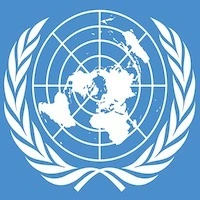
> Acknowledging the intersections of human rights and advertising, the United Nations panel gives a call to action to the advertising industry to use its global impact to positively influence human rights crises worldwide.
> The advertising industry operates across various platforms: print, broadcast, radio, and digital. Advertisers wield significant power in shaping public narratives and influencing societal perceptions of diverse issues and individuals.
> As Pia Oberoi mentions in her opening remarks at the recent United Nations panel, Intersections Between Advertising and Human Rights, the industry invests plenty of money in global ad spend.
> In 2023, digital ad spend is projected to reach a staggering $679 billion worldwide. With such substantial financial resources and pervasive outreach into households and communities, advertisers possess immense potential to affect lives positively or negatively, both online and offline.
> Oberoi argues that ethical and informed decisions by industry players can channel advertising spend to support independent and trustworthy media. It can promote inclusive narratives, foster diversity, challenge stereotypes, and empower individuals and communities to enhance their lives and contribute to the betterment of others.
> However, when advertising decisions lack a conscious focus on human rights, there is a risk of funding disinformation and hate speech. This may not only fuel discrimination and hostility but can also incite real-world violence, perpetuating discrimination and other abuses unintentionally. As we watch human rights violations across the world and in our own countries, we must consider the ethics and moral responsibility of our professions.
Immigrants’ Rights Groups Sue Biden Administration Over New Anti-Asylum Rule
> Immigrants’ rights groups today sued the Biden administration over the president’s proclamation and a new rule that severely restricts asylum and puts thousands of lives at risk.
> The American Civil Liberties Union, National Immigrant Justice Center, Center for Gender & Refugee Studies, Jenner & Block LLP, ACLU of the District of Columbia, and Texas Civil Rights Project (TCRP) filed the federal lawsuit on behalf of Las Americas Immigrant Advocacy Center (Las Americas) and the Refugee and Immigrant Center for Education and Legal Services (RAICES).
> President Biden issued the proclamation last week along with an accompanying interim rule issued by the Department of Homeland Security and the Department of Justice on the same day. These executive actions will effectively shut off any access to asylum protections for the vast majority of people arriving at the U.S.-Mexico border, no matter how strong their claims. The proclamation echoes the Trump administration’s previous asylum entry ban, which immigrants’ rights advocates successfully challenged.
[2021] [resource] A Human Rights-Based Approach to Content Governance
> The question of how social media platforms can respect the freedom of expression rights of users while also protecting others from harm is one of the most pressing challenges of our time. Taking a human rights-based approach to this challenge will help ensure alignment with internationally agreed norms and consistency across borders—but what does a human rights-based approach to content mean in practice? We believe that the elements described in this paper constitute the foundations of a human rights-based approach to content governance. We have arrived at these elements by combining the UN Guiding Principles on Business and Human Rights (UNGPs) with a consideration of the various human rights principles, standards, and methodologies upon which the UNGPs were built. We believe that a human rights-based approach to content governance can be segmented into four parts: > 1. Content policy—statements about what content is and is not allowed on a social media platform, as well as about the visibility of content. > 2. Content policy implementation—how content decisions are executed in practice. > 3. Product development—how new features, services, and functionalities are introduced and evolve. > 4. Tracking and transparency—how the outcomes and effectiveness of a human rights-based approach is measured and communicated. Further, we believe that a special focus on engagement with affected stakeholders and the needs of vulnerable groups is essential across all four parts.
> There are two important features to highlight about these four parts taken in combination.
> First, these four parts constitute a robust framework of ongoing human rights due diligence that enable content decisions to be made thoughtfully, deliberately, and grounded upon rights-based analysis, rather than “on the go” or according to the whim of the moment. They emphasize that process matters as much as the decision itself— and that while different companies may reach different conclusions, content decisions should be intellectually consistent, defensible on human rights grounds, and conveyed transparently.
> Second, these four parts encompass more than just what content is and is not allowed on a platform—our approach assumes that international human rights law provides an overall framework for decision-making and action, not simply a “copy and paste” set of content rules for companies to follow.
This will be a perma-sticky.
Add a comment if you think something should be added!
Since when did we get our news from The Onion?
If you use the search functionality, there are some other nuclear related posts that use rights-based language to describe nuclear technology.
This is also relevant: #Atoms4Climate
For real.
Check this out for some info about how human rights apply to this situation. I pulled out excerpts if you don't want to read the whole thing:
[2016] [resource] OHCHR | Report on the Right to Life and + the Right to Adequate Housing
[resource] The human right to adequate housing: Special Rapporteur on the right to adequate housing
This is relevant:
https://lemmy.sdf.org/post/17719095
What China is doing is premised on the idea that global warming is inevitable, so it is best to prepare protections for the people. The linked article goes into detail about their massive earthworks and waterworks projects.
Over half a million people are estimated to be homeless in the United States on any given night
Seems relatively obvious to me that the courts can't handle this one and we need congress to act. Ratification of the International Covenant on Economic, Social, and Cultural Rights (ICESCR) would require congress to write domestic laws to incorporate a core subset of the UN UDHR human rights.
#homeless #homelessness #houseless #houselessness
#politics #usa
#unudhr #humanrights
#voteyourconscience
I think so, yeah.
- The true reunification of the right to life and the right to adequate housing, however, can only be accomplished by a global response, led by States, including their legislatures and courts, by human rights institutions and by civil society.
- States must address issues of inadequate housing and homelessness and name them as core human rights issues linked to the right to life — in domestic law and policy and in international initiatives, including the 2030 Agenda for Sustainable Development and the New Urban Agenda. States must also conduct a thorough examination of legislation, court practice and public policies to ensure that the right to life is not restricted to a negative rights framework. States must formally recognize that the right to life includes the right to a place to live in dignity and security, free of violence, and ensure access to justice for all victims of violations of the right to life, including those linked to homelessness and inadequate housing. Governments must ensure the effective integration of housing policy and social protection with human rights frameworks, mechanisms and institutions, so that housing policy is properly framed around the implementation of core human rights obligations, and access to effective remedies is incorporated in programme design and implementation.
Contents
Page
I. Introduction . . . . . . . . . . . . . . . . . . . . . . . . . . . . . . . . . . . . . . . . . . . . . . . . . . . . . . . . . . . . . . . . . . . 4
II. Unearthing the connections: life, security, dignity and housing . . . . . . . . . . . . . . . . . . . . . . . . . 6
A. Homelessness . . . . . . . . . . . . . . . . . . . . . . . . . . . . . . . . . . . . . . . . . . . . . . . . . . . . . . . . . . . . . 6
B. Informal settlements . . . . . . . . . . . . . . . . . . . . . . . . . . . . . . . . . . . . . . . . . . . . . . . . . . . . . . . . 7
C. Migration . . . . . . . . . . . . . . . . . . . . . . . . . . . . . . . . . . . . . . . . . . . . . . . . . . . . . . . . . . . . . . . . . 8
D. Natural disasters . . . . . . . . . . . . . . . . . . . . . . . . . . . . . . . . . . . . . . . . . . . . . . . . . . . . . . . . . . . 8
E. Post-conflict situations . . . . . . . . . . . . . . . . . . . . . . . . . . . . . . . . . . . . . . . . . . . . . . . . . . . . . . 9
F. Financial and housing crises . . . . . . . . . . . . . . . . . . . . . . . . . . . . . . . . . . . . . . . . . . . . . . . . . 9
G. Domestic violence . . . . . . . . . . . . . . . . . . . . . . . . . . . . . . . . . . . . . . . . . . . . . . . . . . . . . . . . . . 10
H. Independent living and institutionalization . . . . . . . . . . . . . . . . . . . . . . . . . . . . . . . . . . . . . . 11
III. Human rights law: the right to life and the right to housing . . . . . . . . . . . . . . . . . . . . . . . . . . . . 11
IV. Towards a more inclusive understanding of the right to life and the right to adequate housing 15
A. Draft general comment No. 36 of the Human Rights Committee on the right to life . . . . 15
B. Other treaty bodies . . . . . . . . . . . . . . . . . . . . . . . . . . . . . . . . . . . . . . . . . . . . . . . . . . . . . . . . . 16
C. Regional jurisprudence . . . . . . . . . . . . . . . . . . . . . . . . . . . . . . . . . . . . . . . . . . . . . . . . . . . . . . 19
D. Domestic jurisprudence . . . . . . . . . . . . . . . . . . . . . . . . . . . . . . . . . . . . . . . . . . . . . . . . . . . . . 20
V. The way forward: conclusions and strategic recommendations . . . . . . . . . . . . . . . . . . . . . . . . . . 22
I really don't think that community service is an effective remediation. Maybe 20 years community service.
FTA:
The announcement is the first determination of its kind for any Israeli unit by the US government. State Department spokesman Vedant Patel said five security forces units committed gross violations of human rights.
"Four of these units have effectively remediated these violations, which is what we expect partners to do," he said.
"For a remaining unit, we continue to be in consultations and engagements with the government of Israel; they have submitted additional information as it pertains to that unit," he added. The department denies claims it backed down under political pressure by continuing military assistance to the unit despite being unable to say whether or not there had been any accountability in the case.
"We are engaging with them in a process, and we will make an ultimate decision when it comes to that unit when that process is complete," said Mr Patel.
All the incidents are believed to have taken place in the occupied West Bank and Jerusalem in recent years.
Under America's "Leahy Law", sponsored in 1997 by then-Senator Patrick Leahy, a finding that a foreign military unit committed gross violations of human rights means it can be cut from receiving US military assistance.
The US government says it considers torture, extrajudicial killing, enforced disappearance and rape as such types of violations when implementing the Leahy law. Even when there is such a finding, there is an exception to cutting military assistance if the state department is satisfied the cases have been dealt with and justice pursued by the government involved.
See https://lemmy.sdf.org/post/17893901 for an OHCHR resource on human rights LGBTQ+ people.
You are very welcome!
Indeed, that is a relatively accurate description.
You are free to leave it or delete, but I'd recommend leaving this one, as I've not posted any news about HK yet.
If you come across anything that you really think we need to know about, do post it here, and especially post any relevant human rights-based analysis that you come across.
Congrats on being the first person besides myself to post here :)
This is on target, but don't flood us with news - resources > news in this community.
